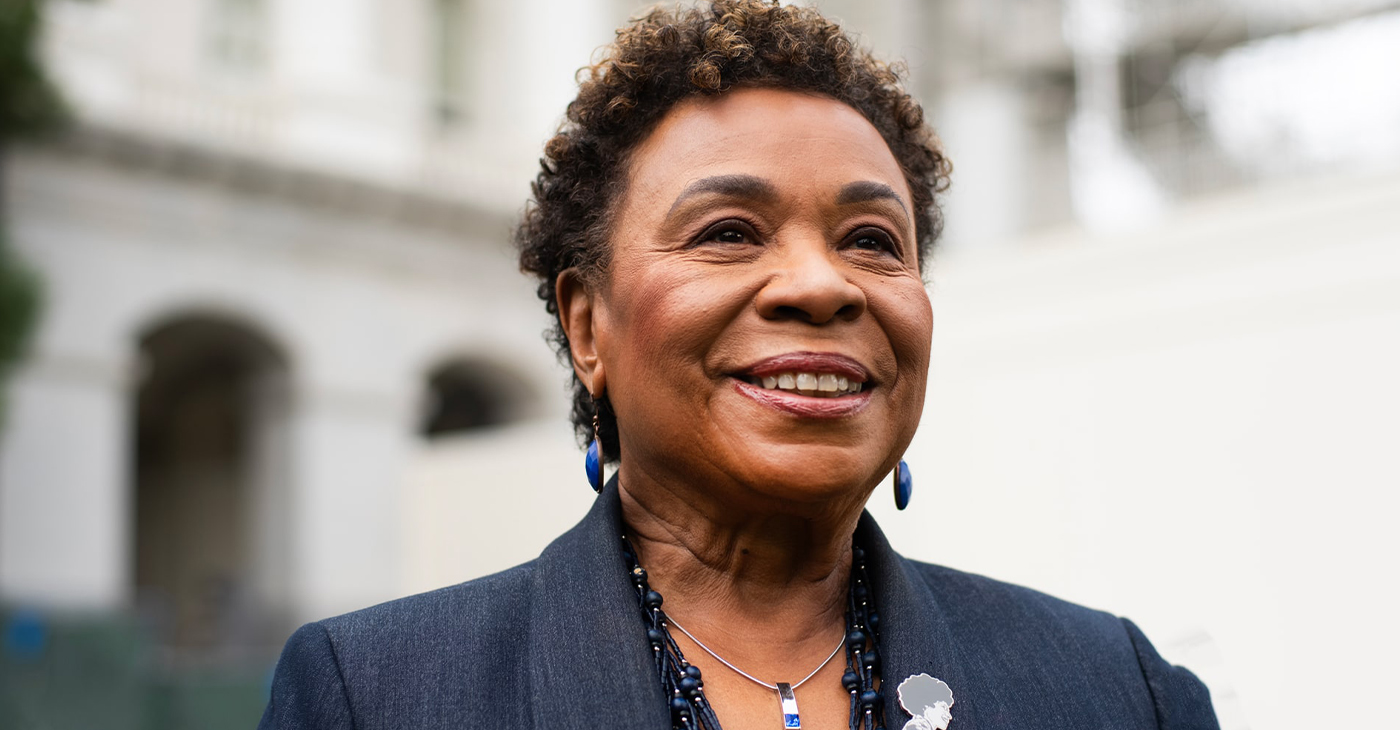Government
Prince George’s Tackles Criminal Justice Reform for Youths
WASHINGTON INFORMER — Prince George’s County State’s Attorney Aisha Braveboy announced a plan Wednesday that seeks to eliminate the school-to-prison pipeline, but with some help. Braveboy, who was elected to office last year, said she will depend on resources from the public school system, sheriff’s office and nonprofit organizations to support a youth justice reform plan.
By William J. Ford
Prince George’s County State’s Attorney Aisha Braveboy announced a plan Wednesday that seeks to eliminate the school-to-prison pipeline, but with some help.
Braveboy, who was elected to office last year, said she will depend on resources from the public school system, sheriff’s office and nonprofit organizations to support a youth justice reform plan.
“I feel really strong about this because we cannot institutionalize our young people,” she said at the county administration building in Upper Marlboro. “Once they get in a system, mentally they think of themselves as part of the system. What we want young people to know is the community cares about them.”
Although community interventions and diversion programs aren’t new, Braveboy described the initiative led by the state’s attorney’s office to help at-risk youth as a “family approach.”
Instead of some youths being processed and tried in juvenile court for certain offenses, the person’s records will be reviewed to determine if mental health, social or other services are warranted.
For instance, Key Bridge Foundation in Largo will provide mediation sessions to handle certain conflicts.
The county will host its first Juvenile Justice Summit at Bowie State University in November for youth and adults to identify causes of behavior. In addition, possibly provide recommendations on state legislation toward criminal justice reform.
Community Public Awareness Council (C-PAC) of Kettering will mentor youth.
The group helped Imani Williams, 16, to change from a troubled, verbally abusive teenager to an honor-roll student at Friendly High School. When this upcoming school year starts Sept. 3, the senior will serve on the school’s peer mentoring group to assist incoming freshmen.
“I’ll tell them do the right and don’t do the things I did,” she said standing beside her mother and grandmother. “Ninth-grade year is not the year to play around. Stay out of trouble. Keep your grades up. Study and do your homework. Stay away from the bad crowd.”
Juveniles assessed and charged with serious offenses such as gun possession and assault would still be processed.
Prince George’s schools CEO Monica Goldson said the focus will not only push for a decrease in the suspension rate, but also call on school resource and police officers to become mentors.
“Relationships help to breed trust and accountability,” she said. “It allows us to have our students come to them for assistance and support. The only way we can do that is to make sure we train and retrain our police officers, our investigative counselors and security assistants to make sure they become those kinds of mentors our children need.”
This post originally appeared in The Washington Informer.
Activism
Oakland Post: Week of April 2 – 8, 2025
The printed Weekly Edition of the Oakland Post: Week of April 2 – 8, 2025

To enlarge your view of this issue, use the slider, magnifying glass icon or full page icon in the lower right corner of the browser window.
Activism
Oakland Post Endorses Barbara Lee
Barbara Lee will be able to unify the city around Oakland’s critical budget and financial issues, since she will walk into the mayor’s office with the support of a super majority of seven city council members — enabling her to achieve much-needed consensus on moving Oakland into a successful future.

As we end the celebration of Women’s History Month in Oakland, we endorse Barbara Lee, a woman of demonstrated historical significance. In our opinion, she has the best chance of uniting the city and achieving our needs for affordable housing, public safety, and fiscal accountability.
As a former small business owner, Barbara Lee understands how to apply tools needed to revitalize Oakland’s downtown, uptown, and neighborhood businesses.
Barbara Lee will be able to unify the city around Oakland’s critical budget and financial issues, since she will walk into the mayor’s office with the support of a super majority of seven city council members — enabling her to achieve much-needed consensus on moving Oakland into a successful future.
It is notable that many of those who fought politically on both sides of the recent recall election battles have now laid down their weapons and become brothers and sisters in support of Barbara Lee. The Oakland Post is pleased to join them.
Activism
Oakland Post: Week of March 28 – April 1, 2025
The printed Weekly Edition of the Oakland Post: Week of March 28 – April 1, 2025

To enlarge your view of this issue, use the slider, magnifying glass icon or full page icon in the lower right corner of the browser window.
-

 Activism2 weeks ago
Activism2 weeks agoWe Fought on Opposite Sides of the Sheng Thao Recall. Here’s Why We’re Uniting Behind Barbara Lee for Oakland Mayor
-

 #NNPA BlackPress3 weeks ago
#NNPA BlackPress3 weeks agoRev. Dr. Jamal Bryant’s Black Church Target Boycott Mobilizes 150,000
-

 Activism3 weeks ago
Activism3 weeks agoSan Francisco Is Investing Millions to Address Food Insecurity. Is Oakland Doing the Same?
-

 #NNPA BlackPress3 weeks ago
#NNPA BlackPress3 weeks agoRecently Approved Budget Plan Favors Wealthy, Slashes Aid to Low-Income Americans
-

 Activism2 weeks ago
Activism2 weeks agoFaith Leaders Back Barbara Lee for Mayor, Criticize Candidate Loren Taylor for Dishonest Campaigning
-

 Activism3 weeks ago
Activism3 weeks agoOakland Post: Week of March 12 – 18, 2025
-

 Activism2 weeks ago
Activism2 weeks agoGroup Takes First Steps to Recall District Attorney Diana Becton
-

 #NNPA BlackPress3 weeks ago
#NNPA BlackPress3 weeks agoPRESS ROOM: The Urban One Podcast Network Announces Los Angeles Wildfires Podcast, ‘Altadena: After the Fire’



















































1 Comment